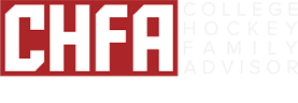NCAA Rules
Home » NCAA Rules
48 HOUR RULE
1. You may have a team cover the cost of one
tryout for up to 48 hours
A CHL team may cover necessary expenses for you to attend a tryout for up to 48 hours (including transportation, lodging, meals, etc.). The 48-hour period begins when you arrive at the tryout location. This is a one-time allowance per team and can be used for a training camp or rookie camp.
2. You may attend for more than 48 hours, but need to cover costs
Should you wish to extend your stay at a CHL training camp beyond 48 hours, you need to be prepared to cover costs from that point on(including transportation home).
3. Dead and Quiet periods.
November 6 – 9 / 2023 is the first week of Fall signings of Letter of Intents. Dead period is from April 10th – 14th.
4. Official NCAA visit
Have your NCAA ID / High School Transcripts / School IRL / Know your test scores
5. Unofficial NCAA visits
Have your NCAA ID / High School Transcripts / School IRL / Know your test scores

GIFTS FROM CHL TEAMS
Do not violate NCAA rules by accepting gifts from CHL teams.
If a CHL team gives you a jersey or other gifts you should be prepared to either return those items, compensate the team appropriately or donate them to charity.
Being invited to a CHL training camp can be a great validation of your skills as a hockey player and a good sign of things to come in your hockey career. That career will include a number of choices along the way – we would encourage you to keep your options open so that you have the opportunity to make the bestchoices for you.
Q: What activities by an agent or financial advisor are considered “advising” student-athletes, which does not jeopardize their eligibility, as opposed to “representing” student-athletes, which does jeopardize their eligibility?
A: These situations tend to be fact-specific and depend on specific circumstances. It’s best to use the following as guidance: When you are interacting on a one-on-one basis with student-athletes and providing advice regarding their future, you are likely to be advising them (unless your discussions include an oral or written agreement to represent them now or in the future, even if you do not act upon that agreement). When you are interacting with individuals other than a student-athlete (e.g., third parties) on behalf of or regarding the student-athlete, it is likely that you are representing the student-athlete.
Q: What activities by an agent or financial advisor are considered “advising” student-athletes, which does not jeopardize their eligibility, as opposed to “representing” student-athletes, which does jeopardize their eligibility?
A: These situations tend to be fact-specific and depend on specific circumstances. It’s best to use the following as guidance: When you are interacting on a one-on-one basis with student-athletes and providing advice regarding their future, you are likely to be advising them (unless your discussions include an oral or written agreement to represent them now or in the future, even if you do not act upon that agreement). When you are interacting with individuals other than a student-athlete (e.g., third parties) on behalf of or regarding the student-athlete, it is likely that you are representing the student-athlete.



